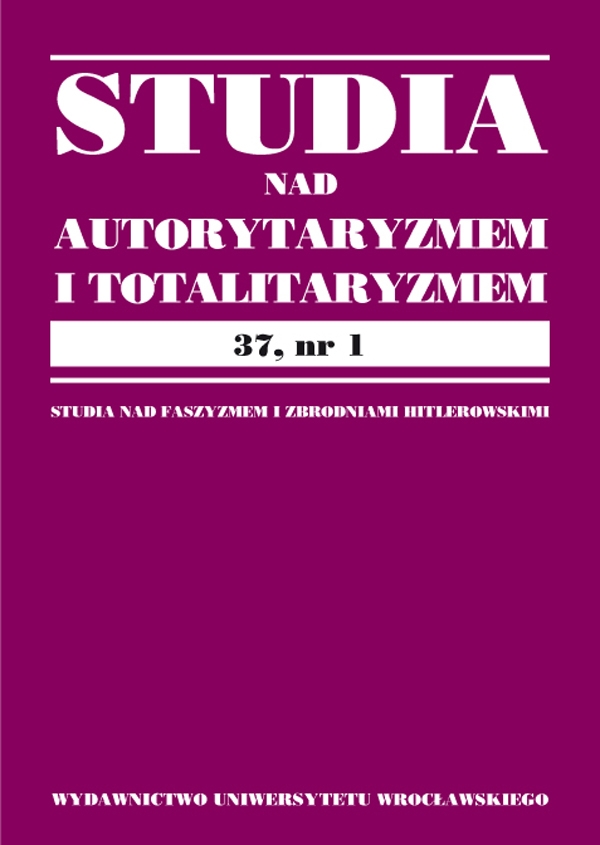

Artykuły

DEHUMANIZATION — A DISORDER AND PATHOLOGY OR A PERMANENT STATE OF THE HUMAN MIND? A LOOK FROM THE PSYCHOLOGICAL PERSPECTIVE OF SOCIAL COGNITION
Dehumanization represents one of the most distinctive and negative consequences which may be accompanied by totalitarian ideology or authoritarian governments. It usually means all activities are aimed at the humiliation and inhuman treatment of an enemy. Dehumanization manifests itself especially in conditions of political and ideological conflict but does not always take such a drastic form. The purpose of this article is an attempt to present the phenomenon of dehumanization as a problem deeply rooted in the structures of human thinking. From the psychological perspective of social cognition it seems to be a phenomenon commonly occurring in group relations and relations which are not necessarily marked by struggle or conflict. Orientation in the social world requires the use of specific human cognitive heuristics which may result in being perceived as dehumanizing. A characteristic of such a perception is, among other things, negation or removing social attributes from a group’s representatives which are considered to be typically human. One of the main postulates of this article is the assertion that dehumanization, as it is understood, is largely a problem of a psychological nature which is very difficult to eliminate because of how it has been ingrained for so long in the cognitive orientation processes in the world. Although in the light of current psychological knowledge the total elimination of dehumanization seems rather impossible, it can be quite effectively limited through interactions at the political and social-cultural level.